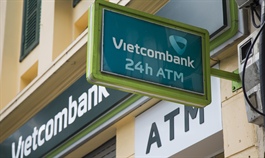Six cities and provinces to pioneer in use of e-invoices
Six cities and provinces to pioneer in use of e-invoices
The General Department of Taxation plans to launch the electronic invoice system at tax departments in Ha Noi, HCM City, Quang Ninh, Hai Phong, Phu Tho and Binh Dinh by the end of this year before rolling it out nationwide in 2022. 
The move aims to help clamp down on tax fraud by using a big data system able to handle a large number of transactions.
Tax authorities found 7,474 businesses that bought, sold or used illegal invoices from 2017 to 2019, with nearly 500,000 violating invoices, and collected nearly VND200 billion (US$8.7 million) of tax arrears.
In 2020, the number of businesses using illegal invoices decreased sharply, but the severity of violations increased, with VND6.6 trillion in tax arrears collected in the first nine months of the year alone.
The General Department of Taxation reported there are currently 255 enterprises nationwide piloting the application of e-invoices with authentication codes of tax authorities and more than 550,000 enterprises applying electronic invoices.
The number of e-invoices businesses use in a year is about 1.3 billion, while there are about 800 enterprises nationwide providing e-invoice software solutions.
Some 2.3 billion e-invoices were used last year, accounting for about 50 per cent of the total number of invoices used in 2020.
Switching to e-invoices has brought many benefits such as reducing the time and cost spent on dealing with invoices among businesses and contributing to tackling invoice fraud.
E-invoices also help businesses reduce costs spent on paper, ink, transportation and storing invoices.
Data from electronic invoices are automatically connected to the value-added tax declaration software, so businesses don't have to take time to prepare value-added tax declarations.
E-invoices also have high security as they use the seller's digital signature, making it tough to counterfeit such invoices.




























